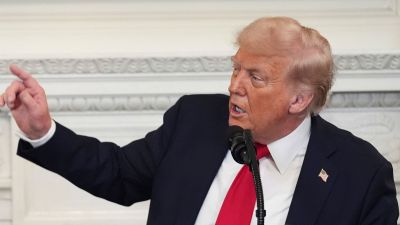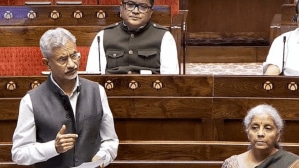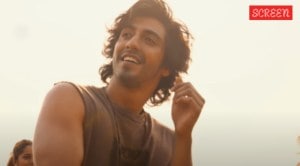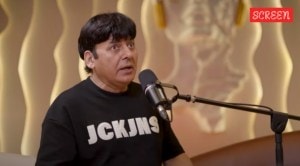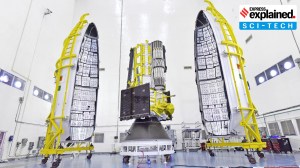Click here to follow Screen Digital on YouTube and stay updated with the latest from the world of cinema.
‘Father Yash Johar had to sell his land, mother Hiroo sold her jewellery after 4 flops’: Karan Johar says dad would have laughed at nepotism tag
Karan Johar recalled his mother would cry when his father wasn't watching, after four of Dharma Productions' films tanked at the box office in 1980s and 1990s. He says his father would have laughed if he saw the nepotism tag being forced on him.
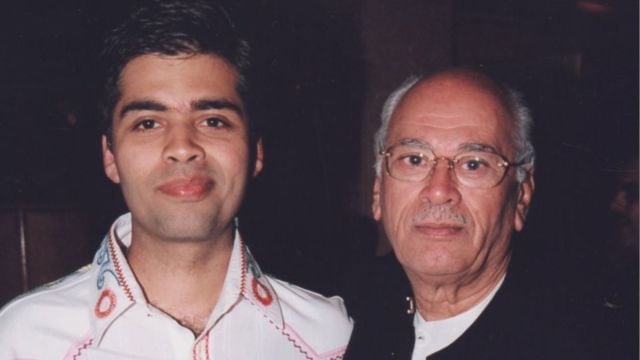 Karan Johar says his father Yash Johar struggled as a producer.
Karan Johar says his father Yash Johar struggled as a producer.Karan Johar came to be infamously known as “the flag-bearer of nepotism” after Kangana Ranaut labelled him that on an episode of his chat show Koffee with Karan in 2017. The filmmaker, known for launching star kids like Alia Bhatt, Varun Dhawan, Ananya Panday, Janhvi Kapoor, and Ishaan Khatter among others, is the son of late producer Yash Johar and Hiroo Johar.
But Karan is amused by the tag of nepotism getting attached to him because of the long patch of failures his father endured in the 1980s and ’90s as a producer. “When my father produced his very first film in 1980, that did really well. And four films subsequently failed. We had a tough financial time. There was no funding from studios or banks those days,” recalled Karan on Jay Shetty’s podcast.
Dharma Productions, Karan’s banner founded by his father in 1980, rolled out a hit that year with Raj Khosla’s buddy movie Dostana, starring Amitabh Bachchan and Shatrughan Sinha. However, four films after that tanked at the box office — Ramesh Talwar’s Duniya (1984), Prakash Mehra’s Muqaddar Ka Faisla (1987), Mukul S Anand’s Agneepath (1990), and Mahesh Bhatt’s Duplicate (1997). Bhatt’s Gumrah (1993) was only a moderate success.
“Those old-fashioned producers sold homes and jewellery, and all that happened to us. My mum had to sell her maternal house, there was jewellery sold, my father sold the only piece of land he owned, because we delivered back-to-back disasters at the box office. Just watching them fail… and today, when there’s so much chatter about nepotism, especially surrounding me, I laugh,” added Karan.
“My father would have the biggest laugh. We weren’t even on the radar of the most influential production house. We’d failed, stumbled, and fallen, but were still rising because my father was a good man and loved by the business. He was very loved by the movie fraternity, but he wasn’t a success story,” said Karan.
He confessed watching his parents go through that financial rough patch wasn’t easy. “To watch my mum cry when your dad wasn’t watching was tough. I was watching both from a distance because they’d keep me away and shelter me. But every day, I’d see sadness in the house, yet given so much love and so much joy. Everything they had, they’d give me,” recalled Karan.
Also Read — Sarzameen review: Ibrahim Ali Khan spared solo lifting in dull and forgettable Karan Johar production
Karan said the silver lining to that dark cloud came in the form of his 1998 directorial debut Kuch Kuch Hota Hai. The film, backed by Dharma Productions and starring Shah Rukh Khan, Kajol, and Rani Mukerji, was a monstrous hit both domestically and overseas. Karan further followed it up with the resounding success of the 2001 family drama Kabhi Khushi Kabhie Gham. However, after the release of his third film, Nikkhil Advani’s romantic comedy Kal Ho Naa Ho (which Karan produced and wrote), his father died of cancer in 2004.


Photos
Photos



- 01
- 02
- 03
- 04
- 05


